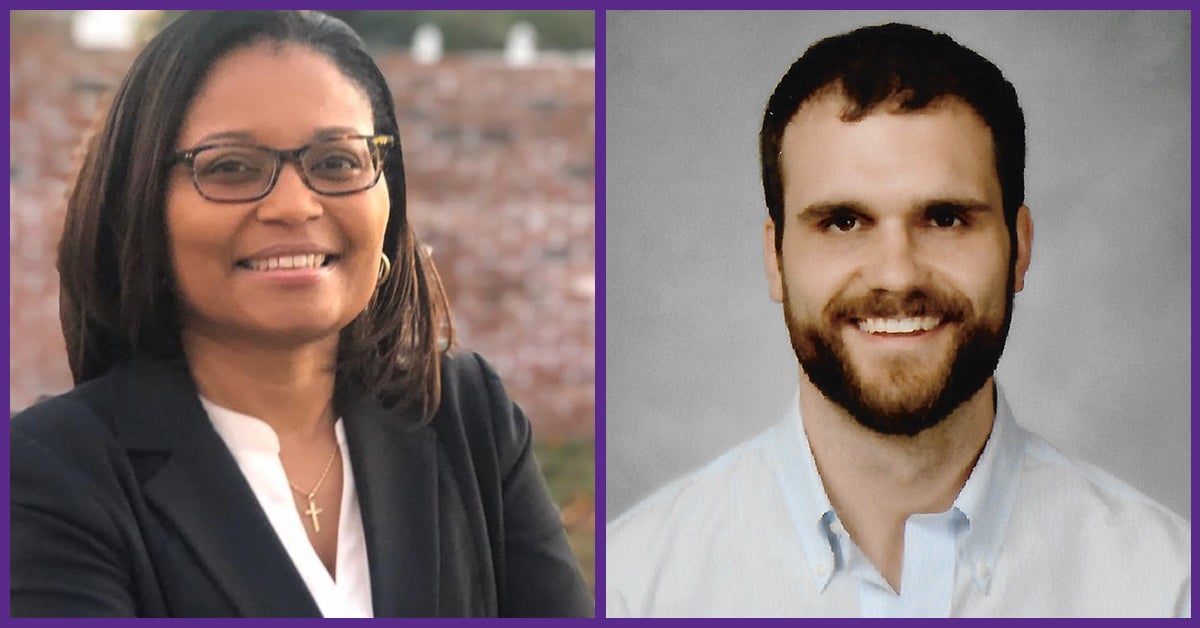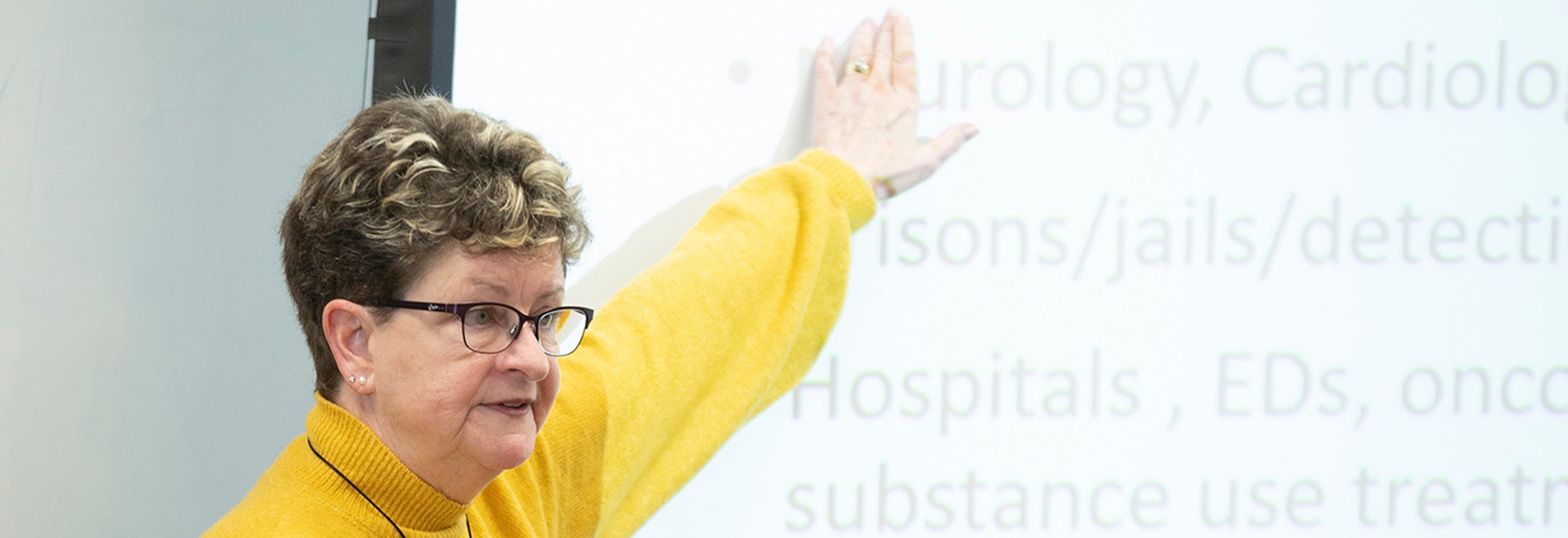PSYCHIATRIC CARE
Psychiatric nurses aim to help North Carolina’s mental health
Recent reports suggest that the nation’s mental health is suffering even greater post-pandemic, with adults reporting record rates of depression and anxiety, and young adults reporting significant behavioral health disorders.
Accessibility to competent services remains challenging as the mental health workforce is overwhelmed.
Couple that with the fact that there are about only 45,000 working psychiatrists in the United States and of those, only a fraction accepts patients covered by government health insurance program, and the immediate future looks bleak. The American Psychiatric Nurses Association estimated that by 2025 there will be just under 18,000 psychiatric mental health qualified registered nurses, both nurse practitioners and clinical nurse specialists. The APNA reports that less than half of adults, and only 1 in 5 children, who need mental health care receive it.
There is hope in sight, though. Recent approval of funding for health care expansion means that $1 billion will help to alleviate the dire need for mental health services in the state.

Adrian Lennon, a two-time College of Nursing alumna, practices in Cumberland County, while Austin Sowell, a recent Pirate nurse graduate, works with eating disorder patients in Charlotte. (Contributed photos)
East Carolina University’s College of Nursing is working hard to be part of the solution by training and graduating psychiatric mental health nurse practitioners — health care professionals trained and equipped to evaluate and treat mental health conditions — to help fill the widening gap between those in need and those who can help.
ECU had the state’s second PMHNP program, and in its six years of existence, 66 PMHNPs have graduated and infused North Carolina with qualified providers poised to impact underserved communities. Each year two groups of 10 students fill a traditional master’s in nursing degree program and a post-master’s certificate program for current advanced practice nurses.
Wanda Lancaster, a clinical associate professor and the inaugural concentration director of the psychiatric mental health nurse practitioner program, said the benefit of the psychiatric training that Pirate nurses receive is shared by PMHNPs and all of the undergraduate nursing students. Because of the pervasive need for behavioral health treatment, and the increasing use of telehealth in emergency departments, registered nurses in clinical and hospital sites need to be trained to assist the PMHNP with hands-on patient evaluation.
Like many members of the college’s faculty, Lancaster maintains clinical practice with Brody School of Medicine’s Department of Psychiatry and Behavioral Medicine. The position is funded by a grant to provide psychiatric services to the student health center at Elizabeth City State University, which leverages telehealth to reach underserved rural regions and the N.C. Statewide Telepsychiatry Program (NC-STeP) at ECU.
Lancaster said the feedback that she receives from psychiatrists and PMHNPs who precept her students is glowing, and most have at least one job offer before they even graduate.
“We’ve had a number of people say to us ‘I’ve never worked with a student coming out of a program who was ready to hit the ground running like yours are. Whatever you are doing, keep it up,’” Lancaster said through a smile.
Lancaster said the only thing preventing the college from educating even more PMHNPs is faculty — there simply aren’t enough qualified candidates to fill the need.
Meeting the need
Austin Sowell came to mental health nursing after playing football in college and working on a NASCAR pit crew. After graduating with a nursing degree and then some time as a travel nurse in emergency departments, he completed ECU’s PMHNP program. He now works in private practice in Charlotte primarily with patients dealing with eating disorders. The training he received at ECU prepared him to meet the growing mental health care needs of North Carolinians.
“There are a lot of people out there struggling with mental health and mental wellness. That’s what I was seeing in the emergency department — people go there instead of receiving proper psychiatric care,” Sowell said. “Then COVID did a number on everybody.”
Adrian Lennon is a two-time graduate of the College of Nursing and has a private practice in Cumberland County, home to Fort Bragg. She sees the same behavioral health challenges in her communities as in the rest of the state, but in some ways the crisis of care might be exacerbated by the toll that a generation of war has taken on the military.
“Military families are hurting just as much as citizens in our rural communities in the state. Military families often experience gaps and inconsistencies with mental health services due to travelling from one duty station to another. Mental health services available in one area are may or may not be available in others. Veterans are at considerable risk for disparities in mental health care. The mental health crisis among veterans coupled with high demand and limited supply of mental health providers leaves our military community at a disadvantage,” Lennon said.
But that’s not to say that military patients are the only ones who need help. The rural communities in the Sandhills are riddled with depression, anxiety and the like, overcast by an epidemic of powerful prescription and street drug misuse in adults and kids as young as middle school, Lennon said.
The quality of ECU’s PMHNP program, and the students that graduate from it, give her hope.
“A lot of programs teach for boards, meaning they’re more concerned with numbers and outcomes. I was taught to be a provider of mental health services and being a competent and safe mental health provider,” Lennon said. She is thankful for the opportunity to give back to the program and precept the next generation of PMHNPs.
“I’m a Pirate nurse through and through. ECU’s nursing students are prepared: They’re smart, critical thinkers and they know what is expected of them. I will always accept the ECU nursing student over other programs any day of the week,” Lennon said.
One of the severely under-resourced populations requiring mental health treatment in North Carolina are those in prisons and other correctional institutions.
Gayle Levinson is a 2021 ECU PMHNP graduate working in adult corrections.
“I see a strong bidirectional relationship between a person’s situation and their mental health. Unfortunately, people with mental illness not receiving needed treatment too often end up in jail or prison. Considering the lack of community resources, it’s no surprise that people with mental illness, or mental health issues, are overrepresented in our jails and prisons, here in North Carolina, as is the case throughout the nation.”
Levinson became a nurse after a successful career in business as a natural extension of her commitment to community service including volunteering as a Guardian ad Litem and with other organizations. While working as an oncology nurse, she saw how people’s mental health affected their overall outcomes and this started her on the path to becoming a PMHNP.
“ECU was my top choice because I wanted a high-quality, well-respected, online program that was committed to the health and wellness of North Carolinians,” Levinson said.
“For some people, there is a stigma about working in a jail or prison. In my case, I’m motivated by the contribution I can make to a vulnerable population, and that is why I choose to practice in this setting.”
Levinson takes pride in being part of the solution, not only for the individuals who are incarcerated but for society as a whole. She suspects that many of the patients she helps found themselves in legal trouble due in part to mental health and addiction. Helping them address these illnesses is rewarding and contributes to a safer prison environment.
“As a prisoner, you are always on guard; you’re easily emotionally reactive. To be in a place, even in prison, where you feel like you have a connection with someone who understands you, who hears you, who helps you process your feelings and emotions, that can put you in a much better place,” Levinson said.
Levinson said that much of the stress that her inmate patients deal with stems from returning to their communities — finding a job, a place to stay, and reentry programs that will help keep them out of trouble and connected to ongoing treatment and support.
“We know that part of healing is about caring. If someone feels like you care about them, they’re going to get better and are more likely to engage in their recovery,” Lancaster said. “Nurses are good at the caring. Mental health is health and we are fortunate to have a great PMHNP program with graduates who are caring, committed, and competent mental health providers.”
